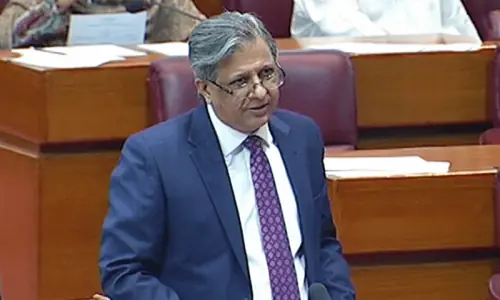IN a recently published report, WHO has warned that the lack of investment in the prevention and care of cancer will increase the risk of disease by as much as 81pc in middle- and low-income countries by 2040. The countries in this category have limited resources to spend on battling infectious diseases and improving maternal and child health. They have even more limited systems in place for effective treatment and management of cancer patients. The WHO report was released to coincide with World Cancer Day observed across the globe on Feb 4 every year. The report attempts to highlight the global inequalities of the cancer burden. On the one hand, where the cancer risk was increasing manifold in poorer countries, better treatment facilities in richer countries resulted in a 20pc drop in cancer mortality rates between 2000 and 2015. However, the reduction in cancer mortality rates in middle- and lower-income countries was just 5pc. The report warned that the incidence of cancer across the world would increase by around 60pc worldwide, with the majority of cases being reported from poorer countries.
The findings should raise great alarm in Pakistan; the country’s limited resources all too often have to combat outbreaks of illnesses such as dengue fever, AIDS and polio. Besides, there are several other ongoing health challenges such as failure to vaccinate children. Dealing with cancer is much further down on the list of priorities. No wonder then that Pakistan has the highest prevalence of breast cancer in Asia, while there has been a drastic surge in the incidence of oral cancer due to the consumption of harmful tobacco and betel nut products. Before becoming prime minister, Imran Khan had built a state-of-the-art cancer treatment facility. Perhaps he can put his prior experience to use by encouraging health officials to come up with a comprehensive plan for raising awareness about early detection and prevention of common cancers prevalent in the country, and equipping public-sector hospitals to combat and manage this painful disease.
Published in Dawn, February 6th, 2020



























